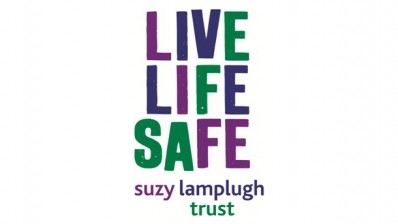ASK THE EXPERTS
How hotels can comply with fire safety laws

There are increasing numbers of hoteliers being prosecuted for breaches of fire safety, so what’s changed and what do you need to do to stay the right side of the law?
The recent prosecution of Chumleigh Lodge Hotel in Finchley (resulting in fines of over £260k) and last year's prosecution of the Penhallow Hotel Newquay (with fines of £80k and costs of £62k) have sent shock waves through the hotel sector. In fact this is the thin end of the wedge as the London Fire Brigade alone has served more than two thousand enforcement notices since 2006, and announced that the London courts ordered individuals, small businesses and large companies to pay more than £1m in fines and costs in 2009 for breaches of the Regulatory Reform (Fire Safety) Order 2005 (RRO).
Changes
Fire safety law changed in October 2006 with the introduction of the RRO 2005. The requirement for businesses to have fire certificates has been abolished and any previously held are no longer valid. Instead, the law:
- emphasises preventing fires and reducing risk
- makes it your responsibility to ensure the safety of everyone who uses your premises and in the immediate vicinity
The basis of assessment is no longer whether you have maintained the conditions of 30-40 years ago, but whether the building is considered safe as it operates today.
Who the rules apply to
Under the order, anyone who has control of premises or anyone who has a degree of control over certain areas or systems may be a ‘responsible person’. For example, it could be:
- the employer for those parts of premises staff may go to;
- the managing agent or owner for shared parts of premises or shared fire safety equipment such as fire-warning systems or sprinklers;
- the occupier, such as self-employed people or voluntary organisations if they have any control; or
- any other person who has some control over a part of the premises.
In the Penhallow case the prosecution was brought against Mr McMillan, a director of the company which owned the hotel, the group's administration director Miss Burfitt and Mr Trucker, who was employed by Hawthorne Safety Consultants the company that carried out the risk assessment.
What you need to do
To comply with the law you must:
- carry out a fire-risk assessment identifying any possible dangers and risks;
- consider who may be especially at risk;
- get rid of or reduce the risk from fire as far as is reasonably possible and provide general fire precautions to deal with any possible risk left;
- create a plan to deal with any emergency and, in most cases, keep a record of your findings; and
- review your findings when necessary
The government has produced a series of guides which are available on the DCLG website. The guides have been designed so that a responsible person, with limited formal training or experience, should be able to carry out a fire risk assessment and know what, if any, additional fire precaution or prevention arrangements need to be in place.
More complex premises will probably need to be assessed by a person who has comprehensive training or experience in fire risk assessment. However these guides will be appropriate for more complex, multi-occupied buildings to address fire safety issues in individual occupancies.
If, having read the guide, you decide are unable to apply the guidance then you should seek expert advice, but choose wisely. Given the importance and potential consequences of an inadequate risk assessment you may be surprised to find that there is no National Accreditation Scheme for Risk Assessors, and pretty much anyone can set themselves up in business to offer them.
Many landlords rely on their extinguisher and alarm supplier to undertake a ‘free’ risk assessment, or simply appoint the cheapest consultant that they can find, but I have been called in on a number of occasions’ where clients have gone down this route only to find themselves the wrong side of an enforcement notice.















